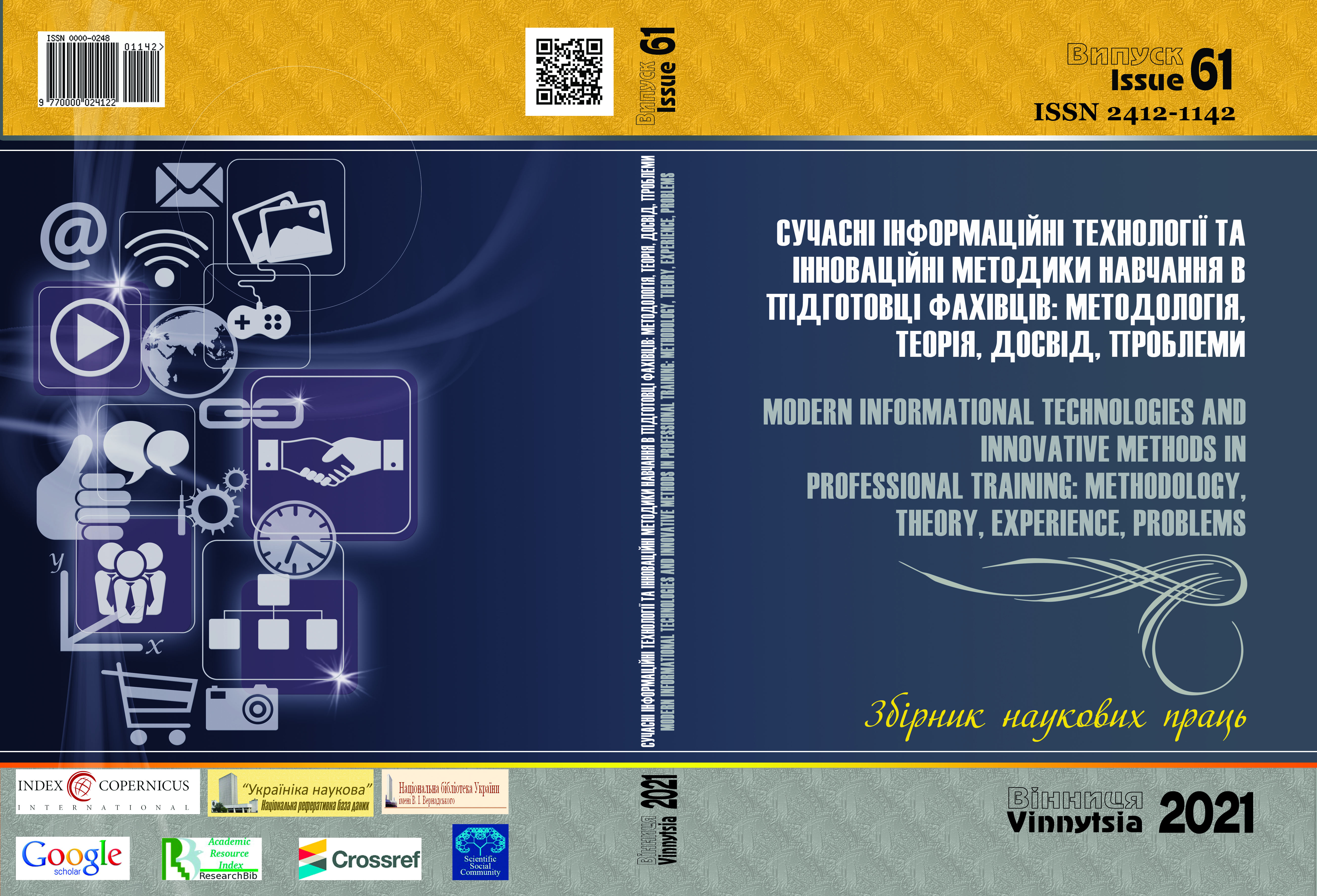DEVELOPMENT OF SPEECH SKILLS FOR EFFECTIVE USE OF A FOREIGN LANGUAGE IN PROFESSIONAL COMMUNICATION
DOI:
https://doi.org/10.31652/2412-1142-2021-61-120-127Słowa kluczowe:
professional communication, speech skills, foreign language, communicative competence, students, educational processAbstrakt
Developing speech skills is a real significant process in learning a foreign language. But the question here for us is: how can we develop students’ communicative competence, which is a complicated problem. Communication can be led in both oral and composed channels, and this examination paper will concentrate on oral English. Developing the English skills for Professional Speaking isn't a case to be done within a brief time frame. It ought to include a ton of creative deals from both teachers and students.
The necessity for foreign language specialists of different profiles is defined by intercultural professional contacts and increases steadily. Today’s demands for professionals require them to have a good level of foreign-language professional and communication competence.
The foreign-language professional-communicative skills of future specialists include a set of competencies: linguistic, speech, sociocultural and sociolinguistic, strategic, and discursive.
Professional speech competence is based on four types of competences: in listening, speaking, reading and writing. Speech skills are an integral part of speech abilities. Lexical competence includes lexical knowledge and speech lexical skills, grammatical competence – grammatical knowledge and speech grammatical skills; phonological one – phonetic knowledge and speech and pronunciation skills. The most important competence is speech competence. It is the ability to use different types of speaking and to know the rules of their forming, and also the ability to create and understand them according to the situation of communication. Speaking is not only a product of speech activity but also a process of its creation, which is determined by the communicative context and conditions of communication. Professional strategic competence presents the ability to choose effective strategies for resolving professional communicative tasks; development of the ability of future specialists to self-improvement and lifelong learning, the intention to communicate in everyday and professional spheres, to listen to and understand others, to outline the educational and working process, the ability of adequate assessment and self-assessment, the development of personal communicative culture.
The method of forming foreign language professional communicative competence of future professionals, understanding the world of professional communication and its rules, developing identification and creating linguistic models of various situations of business cooperation skills is to learn strategies for professional communicative influence on a partner. This is achieved by modeling in the educational process situations of professional cooperation, in which a foreign language serves as an instrument of social interaction of the individual and the professional team, it reflects all changes in socio-cultural factors that affect the hierarchy of values in the personality’s worldview and mentality.





